Uncategorized
-
 Neuroscience
NeuroscienceYour brain wires itself to match your native language
MRI scans of nearly 100 native speakers of either German or Arabic revealed differences in how the language circuits of their brains are connected.
By Elise Cutts -
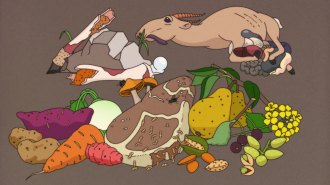 Anthropology
AnthropologyA surprising food may have been a staple of the real Paleo diet: rotten meat
The realization that people have long eaten putrid foods has archaeologists rethinking what Neandertals and other ancient hominids ate.
By Bruce Bower -
 Chemistry
ChemistryHere’s why some Renaissance artists egged their oil paintings
Some Renaissance artists created eggs-quisite paintings by adding yolks to oil paints, which may have helped add texture and prevent yellowing.
By Jude Coleman -
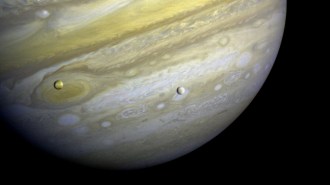 Planetary Science
Planetary ScienceBaby Jupiter glowed so brightly it might have desiccated its moon
During its infancy, Jupiter may have glowed about 10 thousand times brighter than it does today, which may explain why its moon Io is completely dry.
By Nikk Ogasa -
 Astronomy
AstronomyA neutron star collision may have emitted a fast radio burst
Astronomers spotted both a fast radio burst and gravitational waves from a cosmic smashup in the same part of the sky and at about the same time.
-
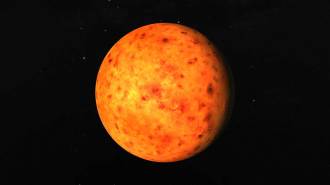 Astronomy
AstronomyThe biggest planet orbiting TRAPPIST-1 doesn’t appear to have an atmosphere
TRAPPIST-1b is hotter than astronomers expected, suggesting there’s no atmosphere to transport heat around the planet.
By Sid Perkins -
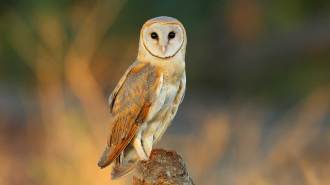 Animals
AnimalsVolcanic sulfur may make barn owls grow redder feathers
Barn owls on volcanic islands tend to have redder plumage than those on nonvolcanic islands, possibly due to an influx of sulfur in the environment.
By Jake Buehler -
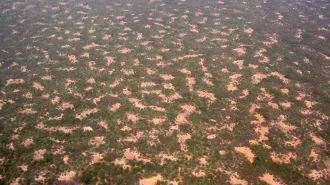 Math
MathChia seedlings verify Alan Turing’s ideas about patterns in nature
New experiments confirm that complex patterns in plants emerge from a model proposed by mathematician Alan Turing.
-
 Health & Medicine
Health & MedicineMicroplastics are in our bodies. Here’s why we don’t know the health risks
Researchers are racing to try to understand how much humans are exposed and what levels are toxic.
-
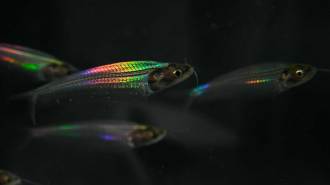 Animals
AnimalsThese transparent fish turn rainbow with white light. Now, we know why
Repeated structures in the ghost catfish’s muscles separate white light that passes through their bodies into different wavelengths.
-
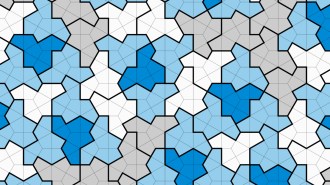 Math
MathMathematicians have finally discovered an elusive ‘einstein’ tile
After half a century, mathematicians succeed in finding an ‘einstein,’ a shape that forms a tiled pattern that never repeats.
-
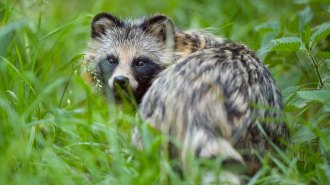 Health & Medicine
Health & MedicineHow raccoon dog DNA fits into the COVID-19 origins debate
Did the virus that causes COVID-19 come from animals or a lab? Evidence hints at animals. Either way, we should be prepping for the next pandemic.